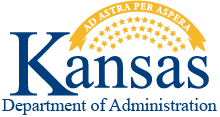Project Costing Archive & Purge Process
January 3, 2020
Archive and Purge for Agencies Using Grants, Project Costing, Customer Contracts, and Billing
Project Costing
Project Data Compression
The SMART Team is currently in the testing phase of the Archive and Purge Project. For agencies utilizing the Project Costing module, the archive and purge process will differ from other modules. Project Costing offers what is termed “Project Data Compression” to reduce storage and increase performance. The process creates summary transaction rows and inserts them into the project transaction table while deleting the original transaction rows. Summary rows will not contain the same level of detail and integration information as the original rows.
What does this mean to agencies?
- If an agency has projects that span multiple years including FY11, the FY11 detail data will no longer be available. There will only be FY11 summary rows available.
- This is different from how other modules in SMART will archive and purge data. Only Project Costing offers Compression, thereby retaining older data in a summarized form.
If my agency needs the detail rows from Project Costing and would like to retain them at our agency, how can I pull that data?
- The KPC00008 Project Resource Extract is a complete download of the data held in the Project Costing Transaction List table. The report is located at Project and Grants > PC & GM Reports > PC Reports > Project Resource Extract. The report criteria are Business Unit, Transaction From Date, and Transaction To Date. For agencies with a large number of transactions, use incremental transaction dates to download the entire fiscal year (e.g. run the report for 1 quarter at a time or 1 month at a time).
What criteria will be used to summarize the data?
- Data Rollup of Accounting Date/Transaction Date
- Business Unit
- Project
- Activity
- Analysis Type
- GL Business Unit
- Fund Code
- Budget Unit
- Program Code
- Contract ID
- Purchase Order ID
- Supplier ID
How will this affect reporting?
- For reports that use the Account code to categorize costs, the reports will not pull correctly for projects with FY11 transactions when the report is run project-wide. As an example, the Project Summary Report will group Expenditures and Obligated amounts from FY11 in the ALL OTHER category instead of the original categories of Salaries, Fringe Benefits, Travel, Equipment, etc. This is because the Account code is not included in the summary rows.
- When entering criteria for reports that span years with compressed data, run the report using the entire year because compressed rows use an accounting date of 6/30/20XX.
- Some reports use Account code or Department ID, while others use a combination of the two. The following are the reports that will not pull correctly for years with compressed data:
- KPC00006 Project Summary Report
- KPC00009 Project Positions Report
- KPC00010 Project Costs Report
- KPC00011 Funding by Project Report
- KPC00013 Monthly Project Status Report
What about current year reporting?
- Compression only affects the years that have been compressed, which will be anything older than 8 years going forward. If there are projects that span multiple years, including compressed years, then project-wide reporting will be affected. Project Data Compression will be completed each year going forward, so agencies should consider this when setting up future projects.
Why is Project Data Compression necessary?
- FY11 has over 5 million rows of project data across all agencies. The Project Costing table is one of the largest tables in SMART. Compression will bring that number down to just over 317,000 for FY11. With over 9 years of data in SMART and thousands of new rows being generated each year, other measures to improve performance are no longer as effective.
How can I prepare for future years with the implementation of Project Data Compression?
- Each agency should evaluate its current business processes and how project compression may impact them.
- Limit the duration of a project as new ones are established so they do not span multiple years.
- Download Project Costing data annually, quarterly or monthly.
- Close projects that are complete, but still in ‘Open’ status.
- If using Project Costing-to-Billing, clean up temporary bills on the Billing Worksheet before closing the projects and associated Customer Contracts.
- Complete a quarterly or bi-annual review of projects in Open status and determine how to proceed with clean up.
Customer Contracts
How will Customer Contracts be affected?
- Customer Contracts that are closed, cancelled, or the Billing and Revenue Plans are closed will be archived and purged. Customer Contract IDs that have Project Costing transactions attached cannot be used again.
What activities should be completed to prepare for next year’s Archive and Purge?
- Inactivate the Billing and Revenue plans on Customer Contracts that are no longer necessary.
Grants
How will Grants be affected?
- Grants currently in SMART will not be archived and purged. However, the projects attached to grants will be impacted by the Project Data Compression process.
Billing
How will Billing be affected?
- Temporary bills with FY11 accounting dates will be archived and purged. Temporary bills on the Billing Worksheet at the time of the Archive and Purge will not be impacted.
- Invoices with FY11 accounting dates will be archived and purged.
What activities should be completed to prepare for next year’s Archive and Purge?
- Write off temporary bills on the Billing Worksheet before closing the Customer Contract and associated projects.
The SMART Team is available to assist agencies with any questions. Submit a Manage Engine Service Desk request.


